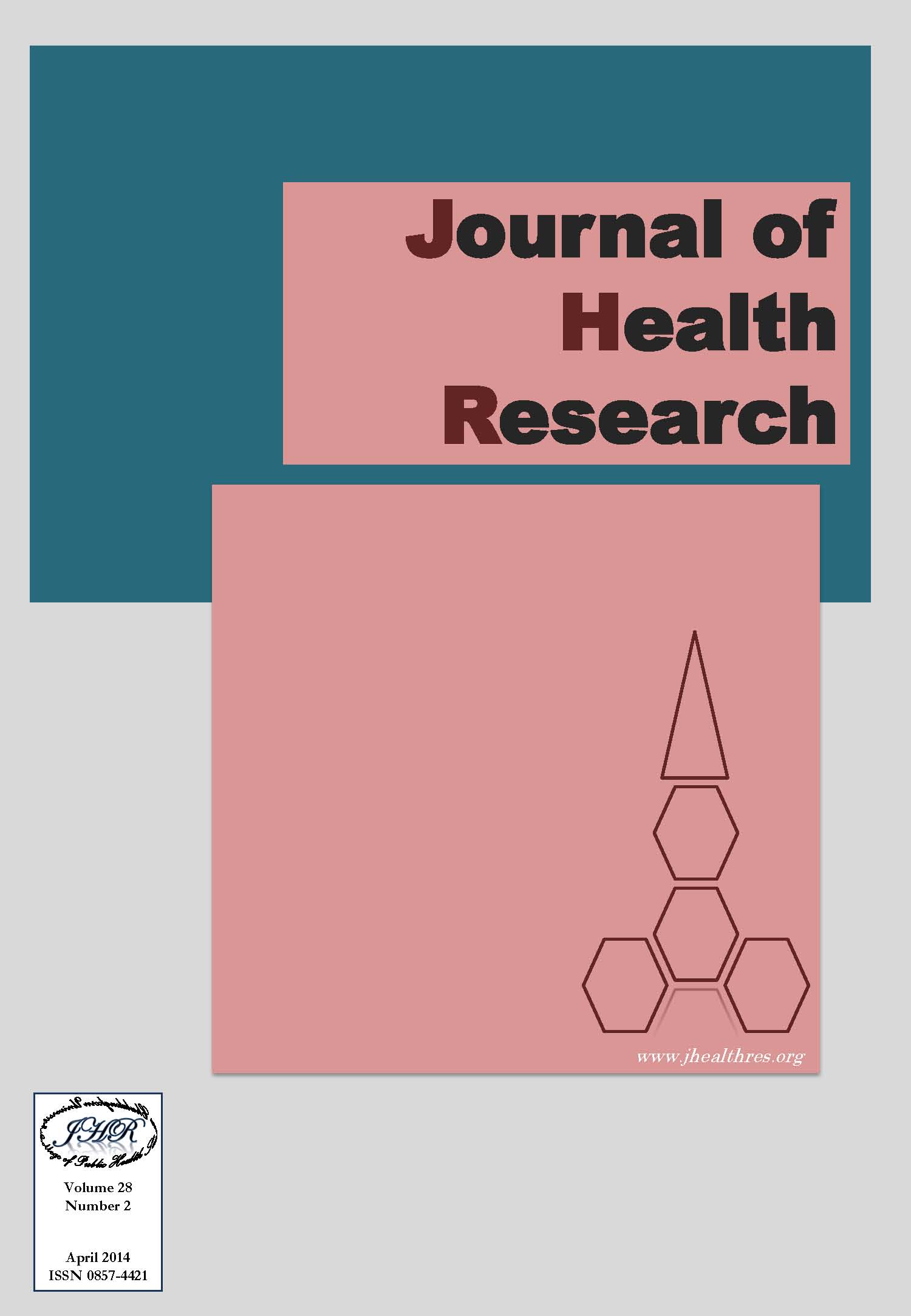Knowledge, Attitude and Practice Associated with Cholinesterase Level in Blood among Rice Farmers in Chainart Province, Thailand
Keywords:
Knowledge attitude and practice (KAP), Organophosphate and carbarmate, Erythrocyte cholinesterase (AChE), Plasma cholinesterase (PChE)Abstract
Most of pesticide uses in Thailand are insecticides such as organophosphate and carbamate which are acting as cholinesterase inhibitors. Erythrocyte cholinesterase (AChE) is typically used as biomarker of chronic exposure and plasma cholinesterase (PChE) is a short-term indicator. This study was a cross-sectional study using face to face questionnaire and measurement analyzer to quantify AChE and PChE in blood. The objectives of this study were to investigate the association among knowledge, attitude, and practice on pesticide uses and cholinesterase levels in blood of farmers at Nang Ler sub-district in Chainart province, Thailand. Farmers (n= 98) were separated into 2 groups which consisted of directly exposed farmers (n=51) and indirectly exposed farmers (n=47). The directly exposed farmers were defined as the farmers dealt with spraying, mixing and loading pesticide; the indirectly exposed farmers were defined as the farmers involving with growing rice and harvesting rice and particularly, without pesticides applying by themselves. Participants were composed of 44 male and 54 female. Average age (±SD) was 46.0 (±12.3) years old. The results showed that the association between knowledge and practice in directly exposed farmers and indirectly exposed farmers were significant positive correlation with p-value < 0.001 (Spearman’s rho = 0.412 and 0.662, respectively). Considering in AChE residue, directly exposed farmers had been getting higher risk than indirectly exposed farmers using independent t-test (p-value = 0.013). The AChE level was not significantly associated with KAP in both of directly and indirectly farmers. Regarding to indirectly exposed farmers, PChE level was significant positive correlation with knowledge (Spearman’s rho 0.538, p-value < 0.001). Using Chi-square test, the significant associations were found between PChE level and both of attitude (p-value = 0.012) and knowledge (p-value = 0.015) in the directly exposed farmers. In conclusion, the directly exposed farmers in the study area may be getting more risk than indirectly exposed farmers according to the statistically lower level of AChE. Directly exposed farmers who had lower attitude level may be increasing more risk associated with PChE level than those who had higher attitude level. On the other hand, indirectly exposed farmers who had lower knowledge level may be getting risk more than those who had higher knowledge level. The further studies should determine the appropriated intervention to increase the knowledge and attitude regarding to the harmful effects of pesticides and proper use of PPE in rice farm.







